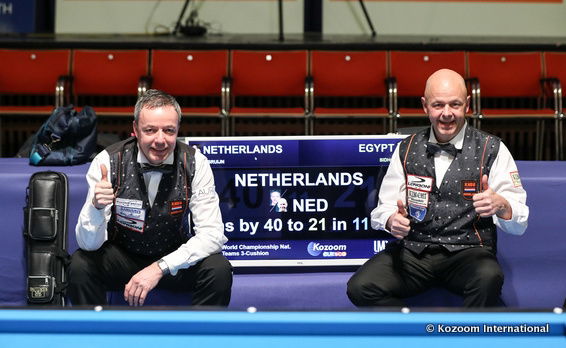VIERSEN - The highlight came from the Dutch team, that improved the best world match on the second day of the World championship for national teams. The best performance in the new Scotch Double system, which is only played for the second year, is now held by Dick Jaspers and Jean Paul de Bruijn. The two Dutchmen recorded the 40 caroms in 11 innings in the second match for the pre-rounds against Egypt. The result was good for a record on the scoreboard: 40-21 in 11, average 3.636.
Dick Jaspers said afterwards: ,,I have broken five or six world records in my career and actually, I can now also count this result as a record.'' The doubt about the value of the record is understandable: it has to do with the Scotch Double system, with four players of one nation at the table at the same time. This way of playing is used since last year. Then, the Netherlands also set the record: Dick Jaspers and Jean van Erp scored 40 points in 15 innings. Jean Paul de Bruijn: ,,I realize that our new record will soon be improved again.''
Four nations were certain in the final rounds after the first part of the preliminaries: the Turks on the opening day as the first team, followed by South Korea on the second day, the Netherlands and finally the Belgians, showing a much better level against France (40 -19 in 18) than on the first day. In the late evening sessions two more countries joined: Germany as the number two behind Turkey, Denmark as the number two behind South Korea after the strong victory Tonny Carlsen and Thomas Andersen recorded against Vietnam (40-27 in 29), that couldn't live up to the expectations.
The Dutch were superior to Egypt after a start with 13-1 (3), 17-5 (5) and finally thanks to combined runs of 8 and 5 for a final score of 40-21 in 11. The Orange-team has the best average after two rounds: 2.286. The Koreans come close to it and are also over two (2.222) after the win over Denmark (40-30 in 21) and in the late night match against Greece (40-19 in 17).
On Saturday, six teams still play for two places in the last eight. Egypt faces Ecuador in Group B and has the chances in its own hand with two match points and the best average. Austria is still in the race, but must beat the Netherlands in its last group match. The French have the best chances in Group A with one more match to go against Lebanon. Japan still plays against Belgium. In this group, the Lebanon team with George Ltief and Yasser Shehayeb showed to be a tough opponent. The Belgians on the first day (40-31 in 35) and Japan team in the second match (40-38 in 35) had a slightly stronger final shot.
What can we say, after two days of matches, about the interaction between the players in this tournament? The main conclusion is: there is much difference in the tactics. The little touch of the Germans with the fists against each other after each point, is improving the team spirit, as the two players say. The Koreans have a certain body language during the runs, but are cool and calculated. The French talk about the positions, the Belgians rarely have a small talk. Semih Sayginer and Tayfun Tasdemir, talk about the best way to score, now and then. The South Americans don't speak too much, but often are watching close when the team mate is at the table. And the Danes, they take it easy and play on their best.
Dick Jaspers and Jean Paul de Bruijn, the record makers on this second day, know each other some forty years and know blindly how they play. ,,I don't like to be disturbed too much, to not lose my focus'', says Jaspers. ,,I play the same as when I play for myself.'' Jean Paul de Bruijn sees the tournament as a great experience: ,,I have the feeling that Dick never misses. That's a motivation for me and I certainly get inspiration playing with him.''
Tomorrow, on Saturday, the last pre-round matches start at 11.00 and 13.30. Then the ranking is made for the eight teams and the final rounds are compiled. The quarterfinals are at 17.00 and 20.00.
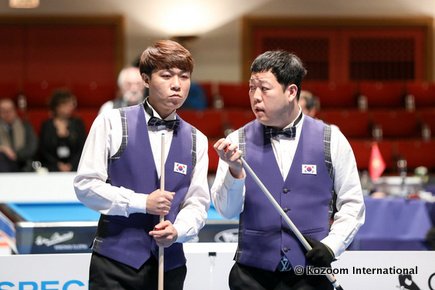
The Koreans Sung-Won Choi and Dong-Koong Kang
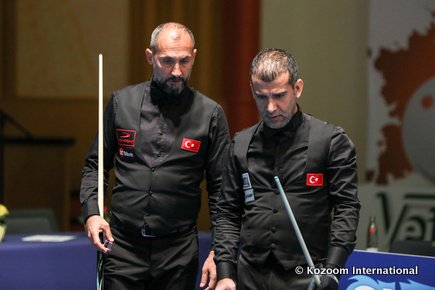
The Turks Semih Sayginer and Tayfun Tasdemir
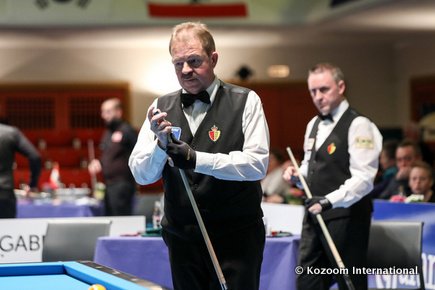
The Belgians Jef Philipoom and Frédéric Caudron
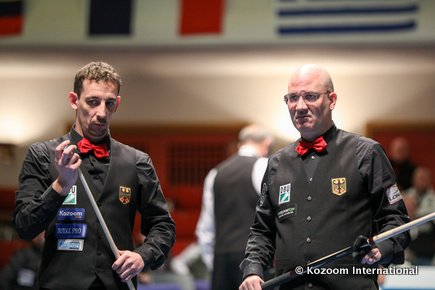
The Germans Ronny Lindemann and Martin Horn
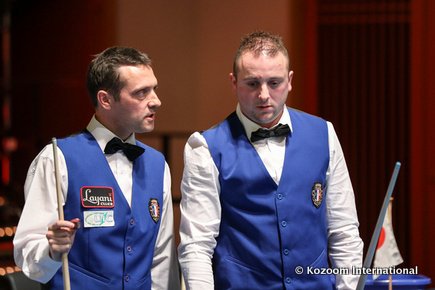
The French Jérôme Barbeillon and Cédric Melnytschenko
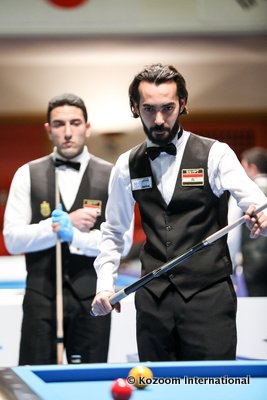
The Egypts Sameh Sidhom and Mohamed Abdin
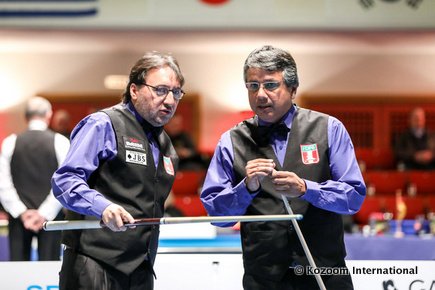
The Peruvians Ramoón Rodriguez and Guido Sacco
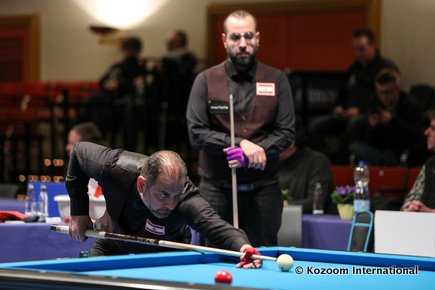
The Lebanons George Ltief and Yasser Shehayeb
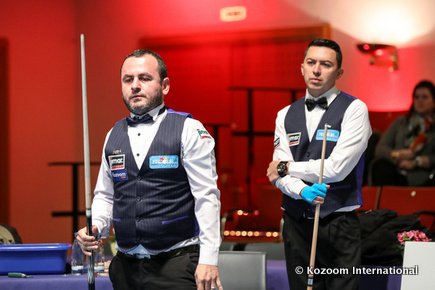
The Colombians Robinson Morales and Fernando Diaz
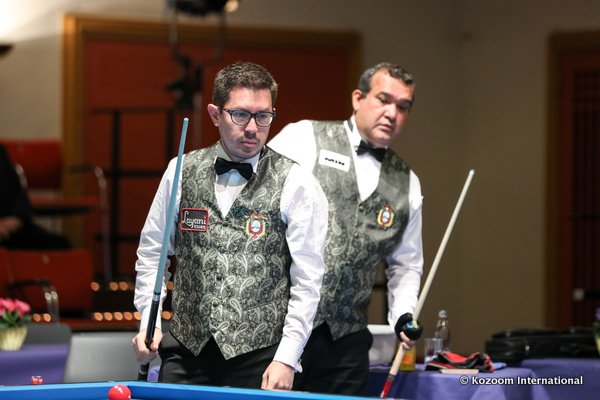
The Ecuadorians Javier Teran and Luis Aveiga
